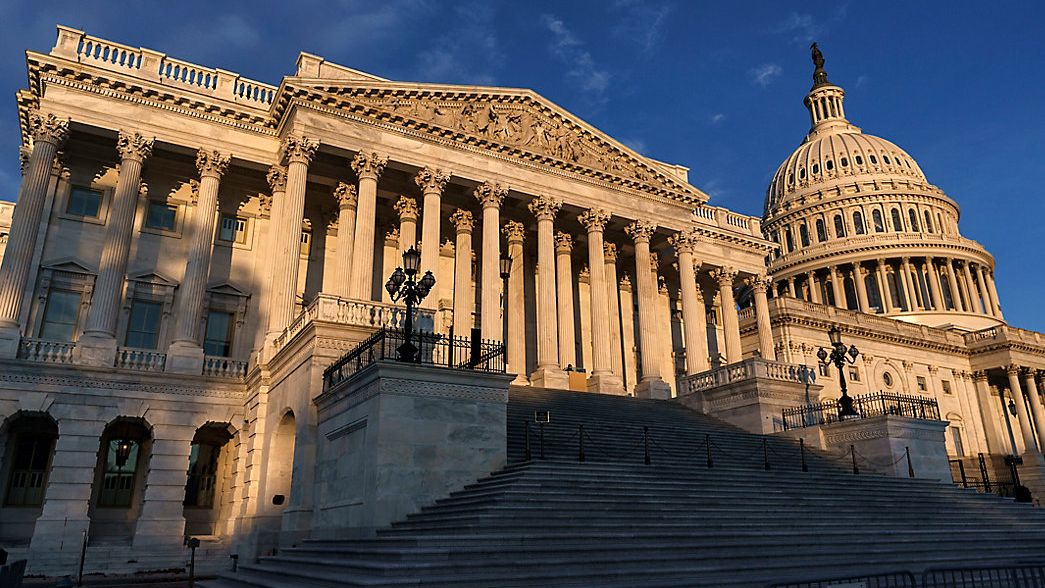President Donald Trump said Thursday that he will veto the National Defense Authorization Act, setting up a showdown with Congress, which passed the bill overwhelmingly in both chambers last week.
"I will Veto the Defense Bill, which will make China very unhappy," Trump said. "They love it."
The president had previously threatened to veto the bill, which affirms 3% pay raises for U.S. troops and authorizes more than $740 billion in military programs and construction, unless lawmakers impose limits on social media companies he claims were biased against him during the election.
"Must have Section 230 termination, protect our National Monuments and allow for removal of military from far away, and very unappreciative, lands," he added.
The Senate passed the National Defense Authorization Act on Friday by a margin of 84-13.
The House of Representatives passed the measure earlier this week, also with a veto-proof majority: 335-78
A total of 140 Republicans joined 195 Democrats in backing the bill, which received support from more than 80% of the House – well above the two-thirds support required to override a potential veto.
Trump has also said he wants Congress to strip out a provision of the bill that allows renaming of military bases that now honor Confederate leaders.
Senate Majority Leader Mitch McConnell, in a rare break with Trump, urged passage of the measure despite Trump’s threat to veto it. McConnell, R-Ky., said it was important for Congress to continue a nearly 60-year streak of passing the National Defense Authorization Act.
“This NDAA will unlock more than $740 billion for the training, tools and cutting-edge equipment that our service members and civilian employees need to defend American lives and American interests,″ McConnell said. “It will give our troops the 3% pay raise they deserve. It’ll keep our forces ready to deter China and stand strong in the Indo-Pacific.″
The dispute over social media content – a battle cry of conservatives who say the social media giants treat them unfairly — interjects an unrelated but complicated issue into a bill that Congress takes pride in having passed unfailingly for nearly 60 years. It follows Trump’s bid over the summer to sabotage the package with a veto threat over Confederate base names.
When Trump ultimately does veto the bill, Congress could cut short its Christmas recess to hold an override vote.
“I think we can override the veto, if in fact he vetoes,” House Majority Leader Steny Hoyer, D-Md., said Tuesday. “I hope he does not veto. I hope he reconsiders. And I think he will get substantial pressure (from Republicans) that, you know, you don’t want to put the defense bill at risk.″
The defense measure guides Pentagon policy and cementsdecisions about troop levels, new weapons systems and military readiness, military personnel policy and other military goals. Many programs can only go into effect if the bill is approved, including military construction.
This is a developing story. Check back later for further updates.
The Associated Press contributed to this report.



